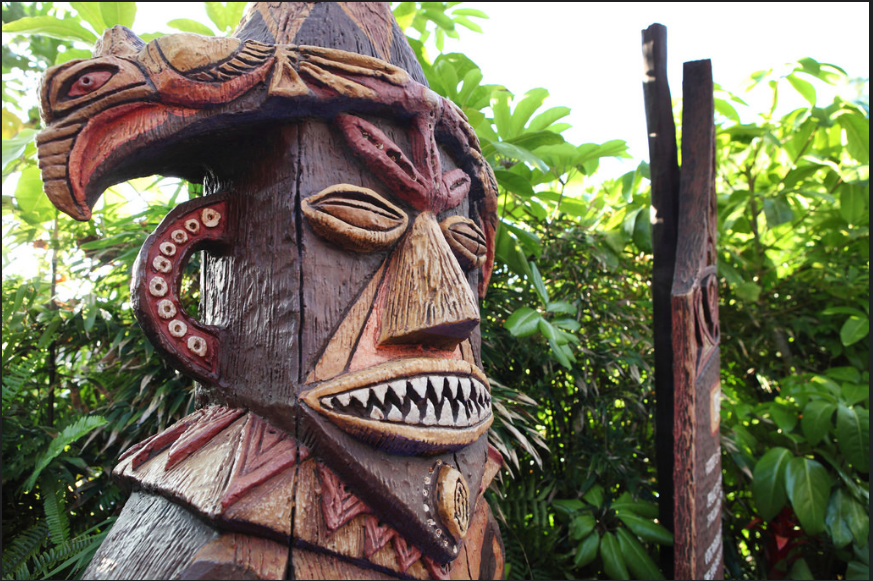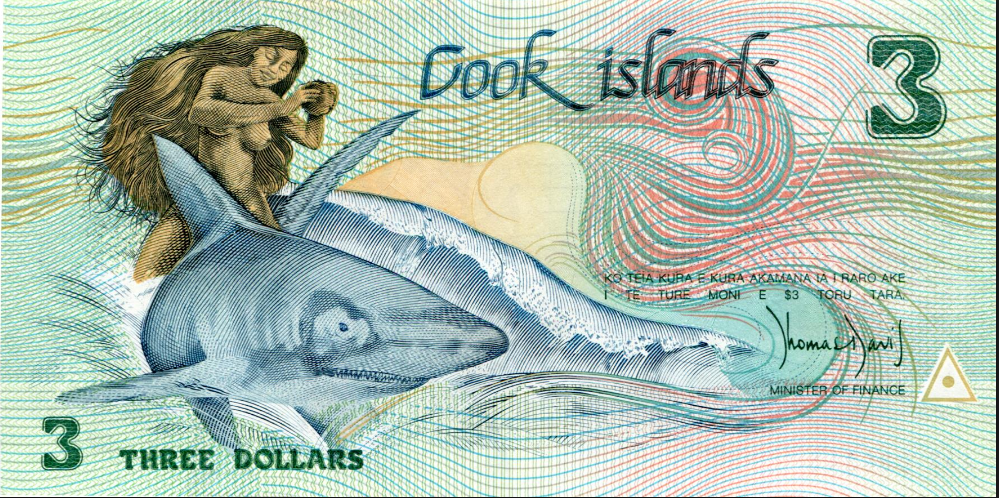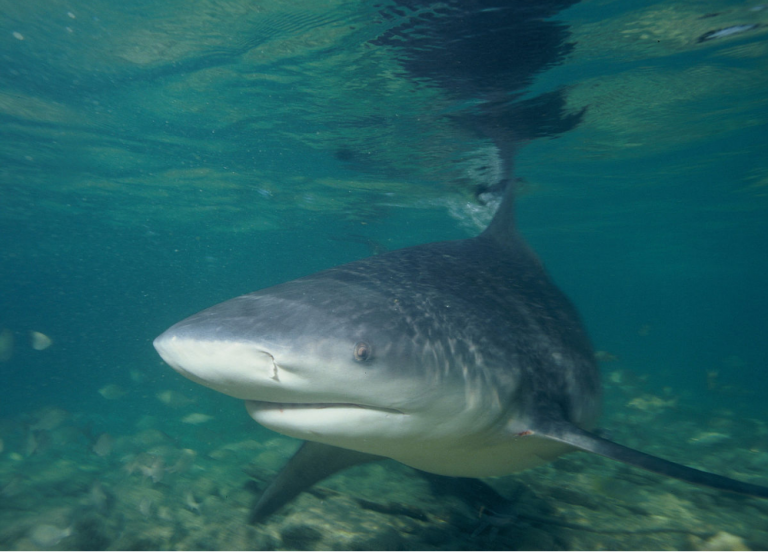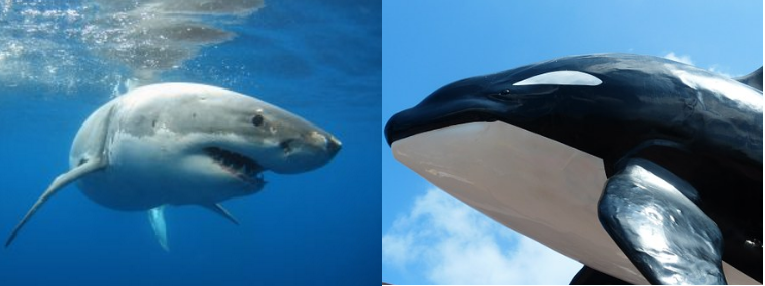Shark Names And Beliefs In Different Cultures

Sharks are fascinating creatures and human interest in them dates back for generations now. For thousands of years, different cultures have had many shark names with some sensational legends and beliefs to boot.
It’s no surprise that sharks were regularly revered as deities, benevolent gods or demon-gods, human incarnations, and so on. Obviously, most of these beliefs and legends originated from island and coastal regions where the inhabitants were in constant proximity to the water. In some cultures, sharks are still revered as spiritual animals to date.
Let’s look at a few shark names and beliefs from different cultures and the astonishing stories surrounding them.
From Fiji
The most popular shark entity in Fijian mythology has got to be the angry, fearless, and jealous sea-god Dakuwaqa. Dakuwaqa is known as a shark-god and is greatly revered by fishermen as a god controlling the waters around Fiji to date. They believe that he protects them from all kinds of danger at sea.
The legend says that he was the guardian of the reef entrance to the islands, but he was somewhat a bully. As such, he would often transform into the shape of a fearsome shark and go around the reefs challenging and terrorizing the other guardians.
One day, after another major conquest, Dakuwaqa heard about an unbeatable god guarding Kadavu island. Dakuwaqa was displeased and he immediately set off to defeat this god but he met his match.
This god in the form of an enormous octopus, entangled Dakuwaqa securely in his tentacles. Some versions say he even pulled out many of his shark teeth and nearly killed him.
Eventually, he begged for mercy and promised to change his ways permanently and never harm anyone from Kadavu. The Octopus-god finally released him and Dakuwaqa kept his promise till now.
The people of Kadavu do not fear sharks in the waters around them. However, the fishermen always remember to pour a local drink called kava (or yagona) into the sea in honor of Dakuwaqa before they set sail. Dakuwaqa has many forms. But his most popular one is that of a Fijian male with human legs and a shark’s torso.
Kissing-The-Shark Ceremony
The ‘ceremony of kissing the shark’ was a popular bi-annual event where the natives would capture sharks, turn them on their bellies and kiss their stomachs. This ceremony was performed by slightly drugged shark-charmers and the belief was that this practice would appease the sharks and ward off attacks on humans.
Apparently, this ceremony became quite a thing and in 1960 a fraternity in Fort Lauderdale, Florida picked up the idea as a cool initiation rite. They somehow managed to capture a tiger shark they named ‘Freddy’ but the cops quickly put an end to the whole thing.
Shark Names And Beliefs in Hawaiian Culture
Hawaiian culture is one of the richest worldwide as regards shark names, cultures and beliefs and they are just too many to mention here. To Hawaiians, sharks are not just animals. They are a powerful force to be respected and protected with pride of place in the marine ecosystem. For centuries, they have had shark gods and spirits that protect them. Specifically, generations of Hawaiians have family guardians, aumakua, that protect their interests and give them spiritual guidance and comfort.
Aumakua are ancestors that reincarnate and come back to protect and help family members.
These aumakua could be a tree, cloud, bird, land or sea animal but sharks remains the most popular to date, especially the tiger shark. Such ‘family sharks’ would lead fishermen to where they can catch many fish and in return the fishermen would feed them.
Of course, not all sharks are considered aumakua and even if your family aumakua is a shark, you can’t expect every shark to be friendly towards you on account of that.
A few popular Hawaiian shark-gods include:
- Kamohoali’i: King of the shark gods and sea guardian of the Hawaiian Islands. Kamohoali’i would rescue and help people after transforming into different sea creatures or human forms. A popular story recounts how he escorted Pele, the Goddess of Fire and Volcanoes when she was transporting the volcanoes.
- Ka’ahupahau: Ka’ahupahau and her brother Kahi’uka, were guardian sharks that were worshiped for centuries. It is said that they were benevolent gods who protected fishermen and other sea-goers and chased away man-eating sharks.
- Kane’apua: A trickster shark god with magical powers.
- Kane’i’kokala: A kind shark god that regularly saved shipwreck victims.
The Cook Islands

From the Cook Islands comes the popular legend of Tekea the Great, the king of all sharks.
One of the most popular tales is that of Ina and the Shark. Though there are many versions of this story, it basically says that Ina was a beautiful, young maiden in love with the god of the Ocean, Tinirau. Tinirau lived on a floating island and asked Ina to come and see him. But she needed transportation across the waters and an unnamed shark offered to help her. She hopped on his back and they were off.
Afterwards, she became hungry and she wanted to break open one of the coconuts she had carried along. She hit it against the shark’s head to open it, denting his head in the process. The angry shark threw her off and she would have drowned (or he would have eaten her). Luckily, Tekea the Great came to her rescue and carried her to meet Tinirau.
Anyway, the islanders believe the knock on the head was how sharks got the indentations on their heads.
This story is so popular that bank notes were made in 1992 to mark 6th festival of Pacific Arts Rarotonga Cook Islands.
Some other popular shark legends/beliefs from around the world include:
– From the Greeks. The story of Akheilos. He was a lesser known sea god and the offspring of Zeus and Lamia. He is depicted as having a shark head and a fiery fish body. He was transformed into this form as a curse for claiming to be more attractive than the god of beauty, Aphrodite.
– The Romans. Sharks were notorious as man-eating beasts in Roman times.
– Brazil/Guyana. In a desperate effort to get rid of his mother-in-law, a hunter named Nohi-Abassi trained a shark to attack and eat her. Unknown to him, his mother-in-law was aware of the plan and disguised her other daughter as the shark he was training.
This shark then attacked Nohi-Abassi instead and bit off his leg. Thereafter, his leg became the constellation known as Orion’s belt.
Modern Day Culture And Beliefs About Sharks
Although most ancient shark worship and beliefs are no longer as popular as before, especially among the younger generations, some modern-day customs can be traced to these legends and stories. For instance, many surfers and divers wear a shark tooth necklace while in the waters. But did you know that the origin of that practice actually came from Hawaii?
The Lord of all Sharks a man-eating shark, challenged Ohav-Lai, the God of the Seas, to a battle for supremacy of the seas. The battle took place deep in the depths of the Pacific and raged for a whole day. At last, Ohav-Lai emerged from the sea victorious with a large tooth he had extracted from the shark’s mouth around his neck.
To date, divers from many South Pacific islands will not enter the water without a shark tooth around their necks. They believe this keeps them safe from harm from any shark.
Sharks In Media: The Jaws Effect

Today, people largely believe ALL sharks are dangerous, man-eating creatures. Though we know for a fact that this is far from true, the media has not really helped matters either. Also, people find it hard to separate fact from fiction sometimes as can be seen in the case of the 1975 movie Jaws directed by Steven Spielberg. It was a work of fiction based on the 1974 best-selling novel of the same name by Peter Benchley. It tells the story of a great white shark attack on the town of Amity.
Jaws is considered one of the greatest and most popular films ever made. It was a summer blockbuster and its released marked a turning point in motion picture history. Jaws maintained the position of the highest-grossing film ever till the release of Star Wars two years later in 1977.
Unfortunately, the movie was so successful at frightening people that the author of the story, Peter Benchley later said ‘Knowing what I know now, I could never write that book today.’
Why?
It was designed to entertain and scare a bit but it seemed to evoke an inexplicable fear and hatred of sharks. Even the author, Peter Benchley, was bewildered by the response of people towards sharks as a result of the movie and he spent the better part of his latter years campaigning for the protection of these fish.
Since then, there have been many books written and films/documentaries made that give a better and more accurate representation of the true nature of sharks. Some are fiction and some are non-fiction.
Though our knowledge of modern-day science means we don’t necessarily believe every word of these ancient legends mentioned earlier, it’s beneficial to have a look at things from the point of view of other cultures.
For instance, the Hawaiians believe that every animal has a rightful place in the earth’s ecosystem. So, the more people learn about the significance of sharks, and other animals, the more inclined they’ll be to be careful and avoid acts like dumping of garbage in the seas and oceans.
Well we can’t argue with that!







Hi I’m Aryana Cheyenne Pugh I am 14 years old, I live in Clinton, Oklahoma I am a freshman who has loved sharks since I was like 5 years old. I want to become a Marine Biologist (Shark Biologist)! I’ve tried joining “Gills Club” a club for Teenage girls to go and learn about sharks so that they can become a Marine Biologist (Shark Biologist) in the future. I’m still thinking of where to go after High School either Hawaii or Florida. I really need all the support I can get to become a Marine Biologist it’s been a dream for at least 4 or 5 years! My connection with sharks started when I was maybe at least 5 years old my dad put on Shark Week (He’s a huge fan of Discovery Channel & History Channel) that’s how my connection with sharks been growing! I have ADHD and sometimes have thoughts since having ADHD I might not become a Marine Biologist. I really hope I do become one if not I be lost wondering what my purpose is in life… I look up to Bethany Hamilton I wasn’t born yet when her shark attack happened but I got to watch her movie called “Soul Surfer” I realize it taught me not to give up on your dreams no matter what happens! I always tell my self “What ever happens, it happens.” I say that to myself pretty much everyday when bad or good stuff happens or might happen. Please share this with people I don’t care how much, I just need people to know that I’m giving up on my dreams no matter what happens! I already know I will become a Shark Biologist because Dr. Pugh sounds really good. Share this with your future daughters! If they love any marine life as much as I do encourage them! Tell them to take it to heart!